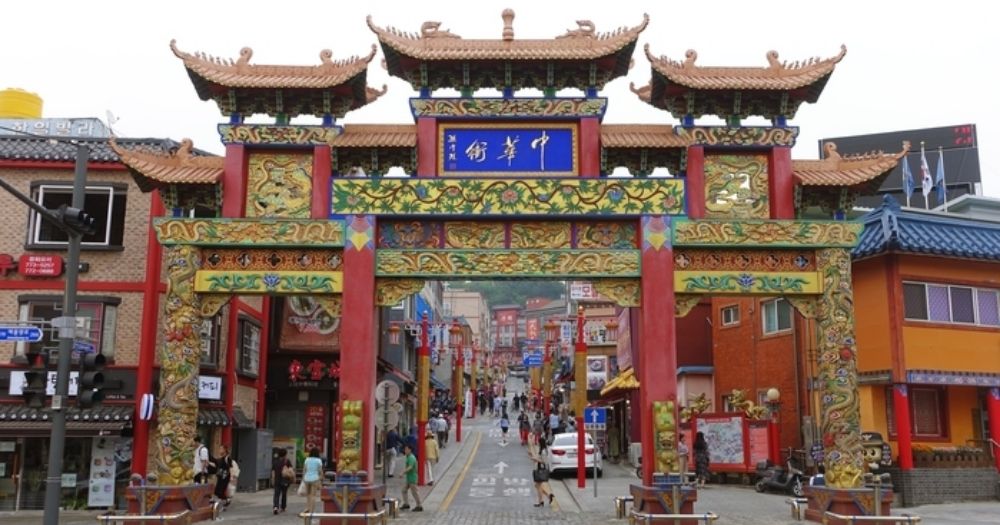A billion-dollar project to build a Korea-China Culture Town in Gangwon province, South Korea was scrapped amid strong opposition from members of the public.
South Korea cancels project to build Chinese-Korean cultural district
Anti-Chinese sentiment snowballed after a petitioner and some domestic news reports claimed that the project was meant to construct a "Chinatown" in the province.
"Why do we need to make a small China in Korea? The public do not understand why we should provide China’s cultural experience on our land, and we firmly oppose it," the author of the petition wrote.
"This reflects growing anti-China sentiment in the nation as China attempts to rewrite history through its northeastern project -- to make all history within the Chinese border into Chinese history," wrote The Korea Herald.
Petition against cultural project garners over 650,000 signatures
A petition was started on Mar. 29 on the presidential Blue House website's online petition page, and garnered over 650,000 signatures in slightly under a month.
According to Korea Joong Ang Daily, the number of signatures the petition received was the highest ever for a Blue House petition.
The Korea Herald reported that petitions signed by more than 200,000 people typically prompt a response from Blue House officials.
Governor insists project not meant to construct "Chinatown" for Chinese settlers
However, Gangwon's governor Choi Moon-soon denied that the project was meant to build a settlement district for Chinese immigrants in South Korea. Instead, he said it was meant to be a tourist attraction that enables "mutual cultural exchanges between the two countries".
He added that the cultural tourism district would have had featured a K-Pop museum and a Korean wave video display to allow for cultural exchange between China and Korea.
"It is not a Chinatown," Choi insisted as criticism against the project mounted.
Before the axing of the cultural project, the provincial government also released a factsheet explaining that the project was not meant to be a settlement town, reported Korea Joong Ang Daily.
It also explained that while the Korean online platform of the People's Daily, a newspaper published by Chinese state media, was a sponsor of the project, it was not a direct investor.
Project cancelled due to overwhelming opposition
On Monday (Apr. 26), Kolon Global Corporation said that the Korea-China Cultural Town project has been cancelled, amid the anti-China public sentiments the project was facing, reported South China Morning Post (SCMP).
"The company acknowledges that the Korea-China Cultural Town cannot move forward any longer" despite “huge losses” the withdrawal would incur, the company said in a notification to Gangwon province.
Kolon Global similarly said that the project was not aimed at building a Chinatown, but a cultural district for tourists to enjoy traditional and modern culture from both China and South Korea.
"Regardless of the truth and facts, we have no alternatives but pay heed to the voices of the 650,000 people who have signed the petition, because [South Korean] people are also clients who are no less important than foreign tourists,” it said, according to SCMP.
Rising tensions between China and South Korea
The furore against the China-Korea project could be a result of rising cultural tensions between China and South Korea, which have been creeping up in recent months.
In November 2020, nationalistic Chinese state-affiliated tabloid Global Times reported Beijing's winning of an international certification for pao cai, a pickled vegetable dish from Sichuan, as "an international standard for the kimchi industry led by China", Reuters reported.
This is in spite of the ISO listing clearly stating "this document does not apply to kimchi".
The Global Times report raised the ire of South Korean netizens, who thought China is claiming Korean culture as its own.
Following this dispute, South Korean mukbang star Hamzy also found herself in the middle of a dispute between Chinese and South Korean netizens earlier this year, after she "liked" a number of comments about China claiming Korean kimchi, a traditional fermented vegetable dish, as its own.
Chinese viewers had felt offended by the "likes" as they interpreted the move as being anti-China.
Chinese netizens also accused South Korea of being "thieves" for supposedly passing off the hanbok as Korean when it is "Chinese" in reality.
Top image via Visit Korea
If you like what you read, follow us on Facebook, Instagram, Twitter and Telegram to get the latest updates.
